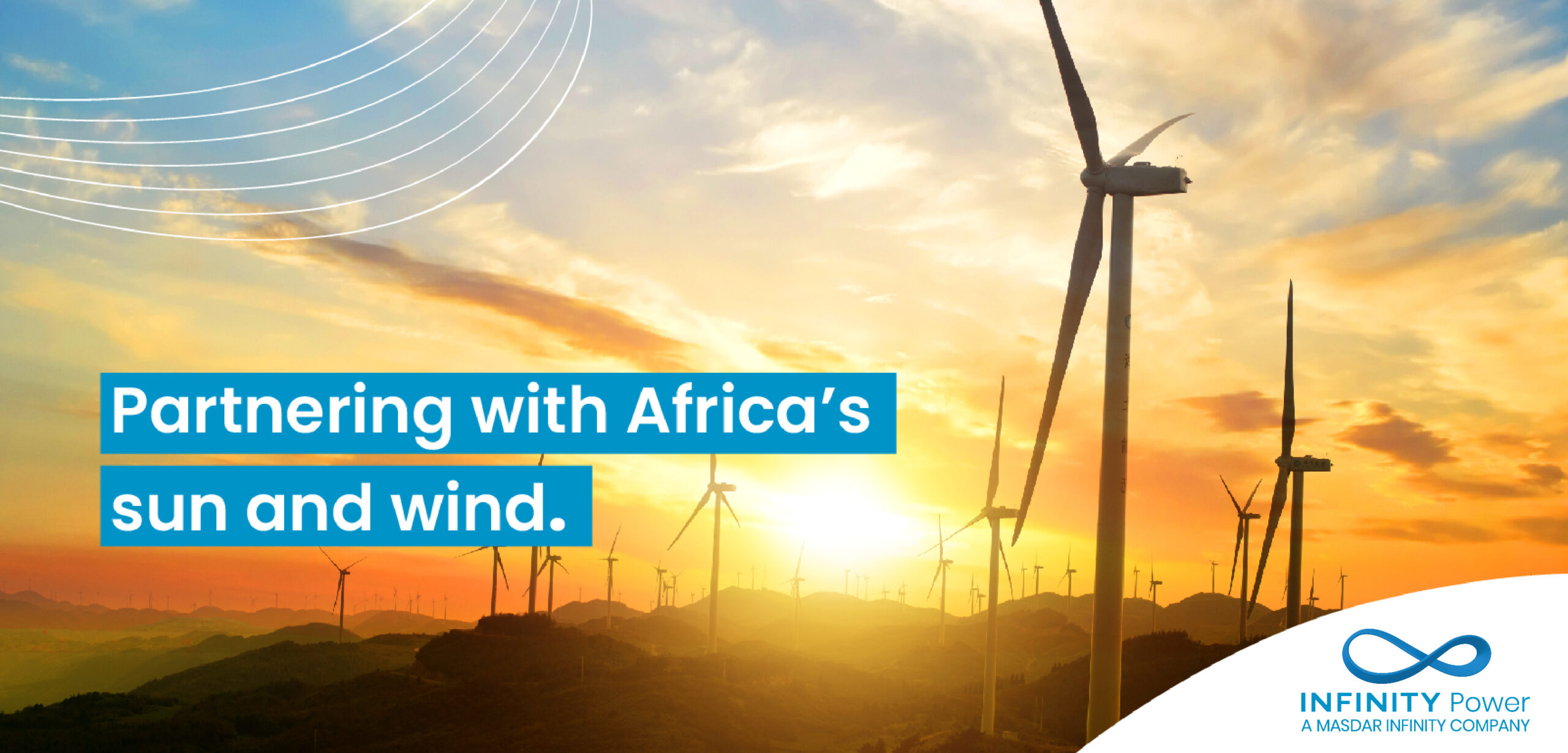- Oman inks a spate of agreements to allocate land for green energy and green steel projects. (Green Hydrogen)
- Egypt closes maiden panda bond issuance with funds earmarked for green transport and renewables. (Debt Watch)
- UAE’s Empower awards contracts for Dubai’s Jumeirah district cooling project. (District Cooling)
- The EBRD is mulling over a EUR 165 mn green loan to revamp Egypt’s energy grid. (Debt Watch)
- The EU is still at odds over fossil fuel phase out debate at COP28. (What We’re Tracking Today)
- Red Sea Global completes largest off-grid EV charging network in KSA. (Also on Our Radar)
- Dutch students trial world’s first solar-powered off-road EV in Morocco. (On Your Way Out)

Tuesday, 17 October 2023
Oman inks a spate of agreements to allocate land for green energy and green steel projects
TL;DR
WHAT WE’RE TRACKING TODAY
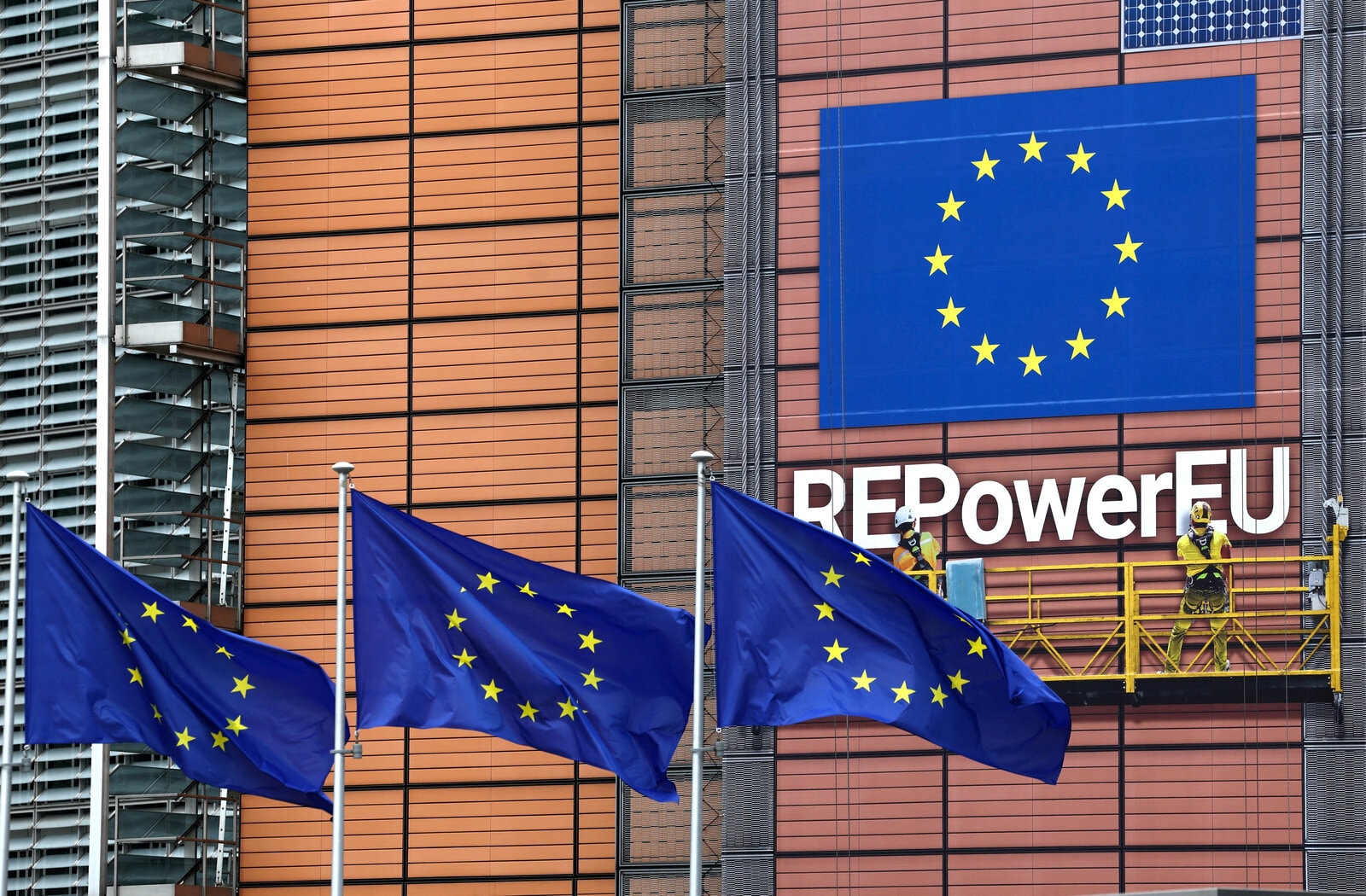
Good morning, wonderful people. We have significant news this morning emerging from Oman on the green hydrogen fund as the sultanate wraps the Duqm Economic Forum today, and other odds and ends from around the region.
THE BIG CLIMATE STORY- Oman’s Public Authority for Special Economic Zones and FreeZones signed seven MoUs for green energy projects including green hydrogen and ammonia plants, green steel production, and renewable energy supply.
^^ We have the details on these story and more in the news well, below.
THE BIG CLIMATE STORY OUTSIDE THE REGION- Severe drought affects Amazon river port: The major river port of Manaus in Brazil's Amazon rainforest is experiencing the lowest water levels in at least 121 years as a historic drought grips the country. The climate-driven drought has affected 481k people, leaving boats stranded in rivers and endangering food and water supplies to villages. This year's onset of weather phenomena El Niño is driving extreme weather patterns globally, Brazil's Science Ministry says, and expects the drought will last until at least December, when weather patterns effects are forecast to peak.
The story grabbed headlines in the international press: Reuters | The Guardian | The Financial Times
OVER IN COPLAND- EU still at crossroads on negotiation position for fossil-fuel phase out at COP: A meeting of EU climate ministers yesterday revealed that the bloc remains split on how hard it should push for a global agreement to fully phase-out fossil fuels at COP28, EU diplomats told Reuters. The 24 EU member countries must agree on their negotiating position unanimously — meaning that just one government can block it — and the discussions have been fierce. Around 10 of the countries are demanding a phase out of all fossil fuels, while a similar number of countries are calling for a phase out of “unabated” fuels instead — which would allow for the continued production of fossil fuel if carbon capture technologies are used. The countries in the opposing camp — including the Czech Republic, Hungary, and Italy — fear the impact a full phase-out would have on their already struggling economies. Some diplomats told the newswire that a weakened stance from the EU could kill off hopes of an ambitious COP28 outcome.
REMEMBER- Fossil fuel phase-out has been one of the biggest points of contention at climate summits this year. G20 leaders and G20 energy ministers failed to reach consensus on a fossil fuels phasedown in September and July respectively. A G7 ministerial meeting on climate policy in April failed to agree on a deadline for phasing out coal. At the same time, the UAE has been calling for phasing out emissions by using carbon capture and storage technologies that the EU has warned “must not be used to green-light continued fossil fuel expansion.”
ALSO- COP28 heads met with multilateral bank executives: COP28 President Designate Sultan Al Jaber signed a letter of intent with the Asian Infrastructure Investment Bank’s (AIIB) president Jin Liqun to solidify COP’s commitment to scaling climate finance with the bank's support, according to a statement. COP28 Director General Majid Al Suwaidi and UAE Minister of State for Financial Affairs Mohamed Al Hussaini met with World Bank president Ajay Banga where they discussed a joint climate finance report and statement published by multilateral development banks and The European Bank for Reconstruction and Development last week. Last month, the AIIB opened its first overseas offices in Abu Dhabi.
WATCH THIS SPACE #1- EU banks will be required to include ESG factors in assessments: EU watchdog the European Banking Authority (EBA) has set new industry-wide requirements — known as Pillar 1 requirements — obliging banks to adjust their client risk assessment procedures to include environmental and social risks, Bloomberg reports. This marks the first time that a banking authority has enforced firm capital requirements to reflect the environmental and social risks. While some of the obligations will be enforced immediately, others will be rolled out over time, in some cases leading to new legislation, according to the EBA.
What impact will this have? The impact is likely to become more pronounced over time, having implications for “traditional categories of financial risks, such as credit, market and operational risks,” the watchdog said. The new regulations are expected to have major implications for high-emitting sectors such as oil, gas, cement, steel and mining. While none have moved as fast as the EU in setting firm requirements, global banking and financial stability organizations are all reviewing reporting and capital frameworks, the news outlet said.
Not everyone is confident about the new rules: The European Banking Federation (EBF) — an umbrella organization for lender associations across the region — is worried there is inadequate data to justify imposing Pillar 1 ESG adjustments. The federation suggests imposing Pillar 2 rules instead, which are specific to individual banks rather than applying to all banks, a senior adviser at the EBF Denisa Avermaete told Bloomberg. “It is also crucial that once the EBA considers a more comprehensive revision of Pillar 1… [that] this is done at a global level to ensure a level playing field for EU banks,” Avermaete added.
WATCH THIS SPACE #2- World’s mining giants failing to adequately account for their Scope 3 emissions: Five of the world’s biggest miners with goals to become net zero by 2050 haven’t proven they are taking the necessary efforts to reduce Scope 3 emissions created by customers and suppliers, Bloomberg reported last week, citing the results of analysis by the Institute for Energy Economics and Financial Analysis. Melbourne-based BHP — the world’s largest miner — and London-based multinational miner Rio Tinto have failed to set any measurable Scope 3 emission reduction targets, lead analyst at the institute Simon Nicholas said in a report, which also described Brazil’s top miner Vale’s efforts as “inadequate.” Fortescue was the only company that received praise from the report, having a target to reach net zero Scope 3 emissions by 2040. The giants may face investor pushback if they do not increase their efforts to account for emissions for which they are directly responsible, Nicholas added in the report.
|
***
YOU’RE READING ENTERPRISE CLIMATE, the essential MENA publication for senior execs who care about the world’s most important industry. We’re out Monday through Thursday by 5am Cairo / 5am Riyadh / 6am UAE.
EXPLORE MORE OF ENTERPRISE ON THE WEB — tap or click here to read EnterpriseAM, EnterprisePM, and The Weekend Edition on our powerful new website packed with reader-friendly features.
Were you forwarded this email? Get your own subscription without charge here or reach out to us on climate@enterprisemea.com with comments, suggestions and story tips.
***
CIRCLE YOUR CALENDAR-
Saudi Arabia will host the Environment Ministers in the Islamic World on Wednesday, 18 October and Thursday, 19 October in Jeddah. The two-day event will bring together ministers from 52 countries, as well as delegates from 30 regional and international environmental organizations, to discuss the green transition and developments in clean technologies within the Islamic world.
Oman will host the Duqm Economic Forum from Monday, 16 October to Tuesday, 17 October in Duqm. The two-day event — organized by the Public Authority for Special Economic Zones and FreeZones — will showcase green investment windows and possible partnerships at the Special Economic Zone at Duqm.
Egypt will host the fourth meeting of the COP27 Transitional Committee from Tuesday, 17 October to Friday, 20 October in Aswan. The meeting aims to establish institutional arrangements, modalities, governance structures, and terms of reference for the landmark Loss and Damage Fund while expanding sources for climate funding under the program.
Check out our full calendar on the web for a comprehensive listing of upcoming news events, national holidays and news triggers.
GREEN HYDROGEN
Oman inks a spate of agreements to allocate land for green energy and green steel projects
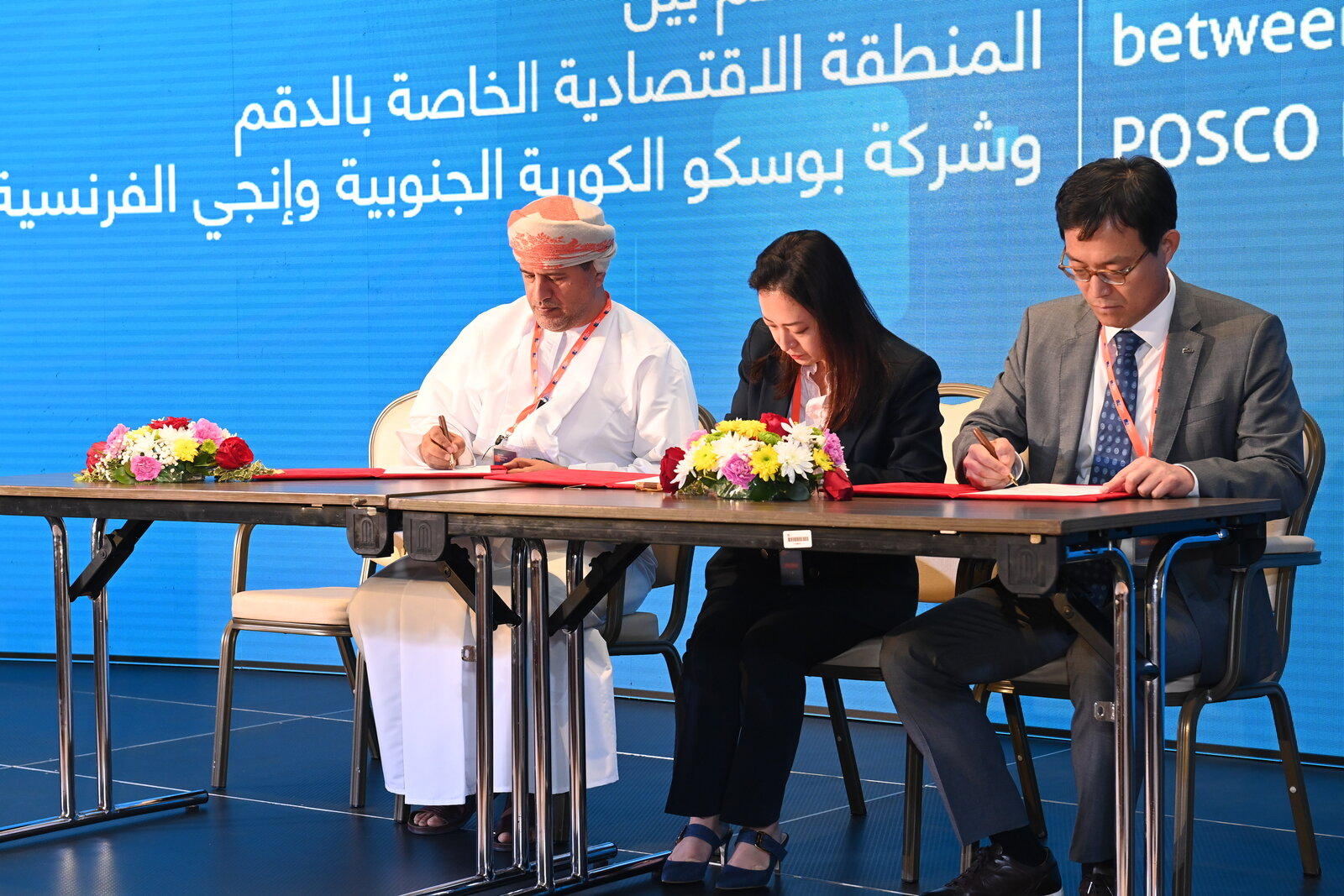
Oman’s Public Authority for Special Economic Zones and FreeZones (Opaz) has signed seven MoUs to support various green energy projects in Duqm, the Oman News Agency (ONA) reports. The agreements include renewable energy supply for green hydrogen and ammonia production, land allocation for green hydrogen and ammonia projects, and green steel production. No financial details or a timeline for the projects were disclosed.
First up, green ammonia: Opaz signed an usufruct agreement with Hyport Duqm consortium — which includes OQ group and Deme Group — allocating 150 square km of land for a wind and solar energy generation project with a capacity of 250-500 MW, ONA reports. The renewable energy will be used to produce green ammonia among other hydrogen derivatives.
BP got in on the action: BP Oman and Opaz signed an agreement to set up a plant for green hydrogen derivatives in Duqm, ONA reports. The company will produce 3.3 GW of electricity and set up an ammonia factory to export 150k tons of green hydrogen annually.
And more green hydrogen derivatives: A Posco-Engie consortium also signed a land allocation agreement for a green ammonia and green hydrogen derivatives plant with a capacity of 1.2 mn tons annually, ONA notes.
Shell Oman wasn’t left behind: Opaz, the Port of Duqm Company and Shell Oman inked an agreement to eliminate the carbon from Shell’s green and blue hydrogen project. Just last month, the company selected Duqm as a suitable location for a planned blue hydrogen and ammonia plant, with technical and commercial viability studies underway.
Green steel is also getting some attention: The authority signed three agreements with Vulcan Green Steel — a subsidiary of Jindal Shadeed — to establish a USD 3 bn green steel factory in Duqm with a production capacity of 5 mn tons. Jindal was also eyeing the potential of setting up a green steel plant in Egypt’s Suez Canal Economic Zone last June.
REMEMBER- Oman's green hydrogen portfolio is booming: The sultanate awarded two green hydrogen blocs to the Posco-Engie and the Hyport Duqm consortiums in June to build two green hydrogen facilities powered by 6.5 GW of renewable energy and with a 250k ton annual capacity. Oman’s state-owned Hydrom also signed an MoU in July with Hyport to establish a green ammonia facility to be powered by 4 GW of renewables and a production capacity of 1 mn tons.
DEBT WATCH
Egypt closes maiden panda bond issuance with funds earmarked for green transport and renewables
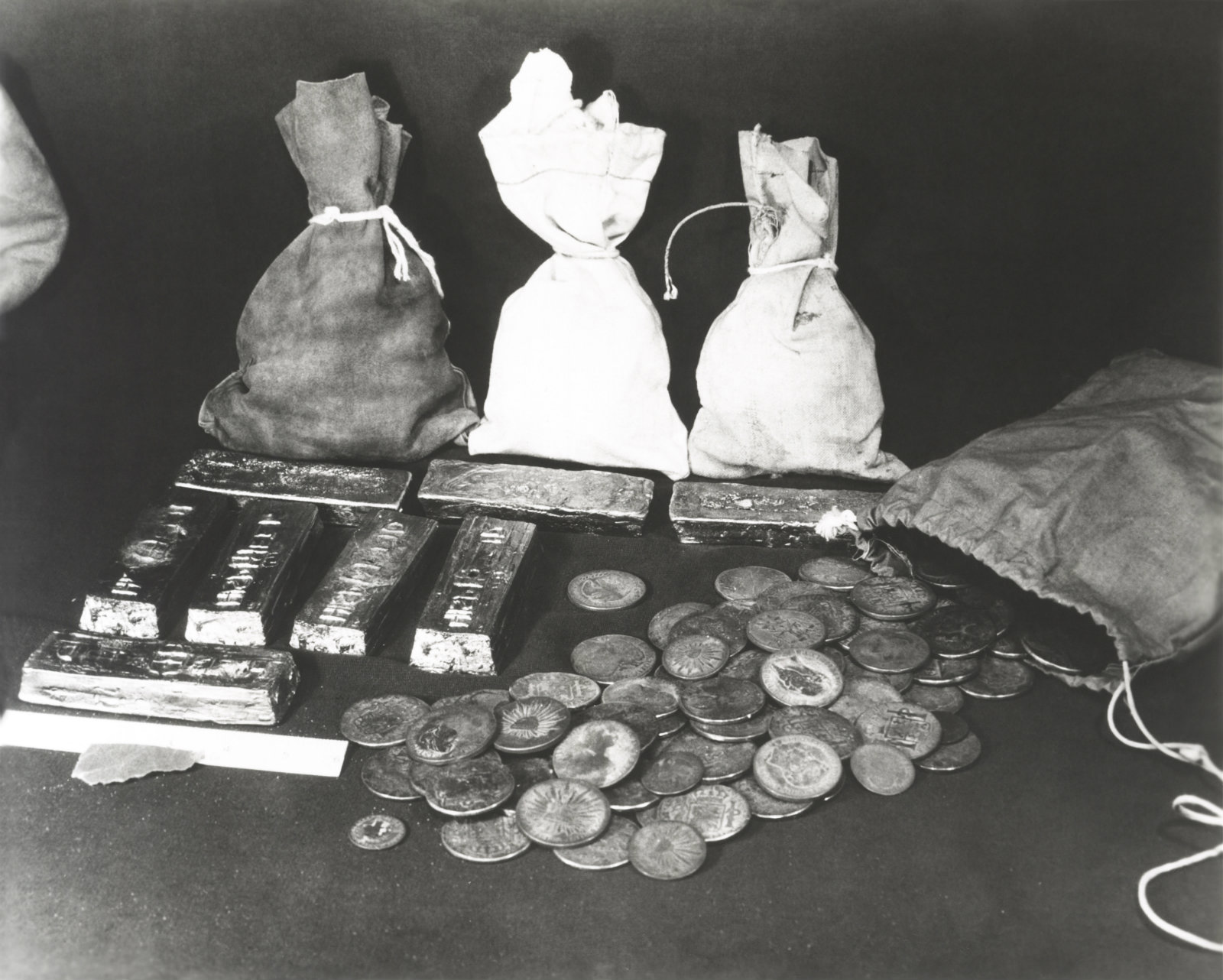
Egypt closed its maiden panda bond issuance in China yesterday with a CNY 3.5 bn (USD 478.7 mn) issuance, according to a statement. The proceeds will be used to fund sustainable projects across a number of sectors including clean transport, sustainable water usage, renewable energy, and affordable housing, Vice Minister of Finance Ahmed Kouchouk told Enterprise. The three-year securities were priced at a 3.5% annual rate, lower than the yield on USD-denominated debt, Minister Mohamed Maait said.
Accessing capital markets: “The issuance attracted high-quality onshore investors and allowed access to capital markets despite the recent volatility in global markets and widening of Egypt’s credit spreads,” Kouchouk told Enterprise.
It’s been on the back burner for a while: The inaugural issuance has been in the works since 2019, but was put on hold due to the pandemic.
Egypt has more in the pipeline: The ministry is planning to close a USD 500 mn issuance of JPY-denominated samurai bonds in the coming weeks, and raised USD 1.5 bn from its first-ever sovereign sukuk issuance in February.
International backing: The African Development Bank and Asian Infrastructure Investment Bank provided guarantees for the issuance.
Reducing reliance on the greenback: The ministry hopes that the CNY can become “an important and significant part of Egypt's basket of currencies” and that yesterday’s transaction will pave the way for further bilateral investment and sustainable financing between the two countries, Kouchouk said.
DISTRICT COOLING
UAE’s Empower awards contracts for Dubai’s Jumeirah district cooling project

Empower awards contracts for new district cooling project: UAE’s district cooling company Emirates Central Cooling Corporation (Empower) has awarded several contracts for the development of a new district cooling plant in Dubai’s Jumeirah, according to a company disclosure to the Dubai Financial Market. No financial details on the project or the new contracted developers were provided.
The details: The new Jumeirah plant will have a 48k refrigeration ton (RT) production capacity once it becomes operational by 3Q 2024. Empower also said the new facility would be aligned with green building standards in Dubai, without providing details on expected emissions cuts from the alternative construction approach. Alongside development of the new plant, the company said it would also work on expanding its RT transmission pipelines in a bid to upscale its cooling infrastructure and expand its services across Dubai.
Empower’s on a roll to boost its portfolio: The company acquired five district cooling plants valued at AED 1.1 bn (USD 300 mn) last May from the Dubai Aviation City Corporation in a bid to add 110k of RT to its portfolio. The company’s assets also include some of Dubai’s most notable infrastructure spots including The Dubai International Financial Centre, Dubai World Trade Centre, Dubai Healthcare City, Meydan City, Dubai Studio City, Dubai Maritime City, Dubailand, Palm Jumeirah, Bluewaters Island, and Business Bay. Earlier in April, the company kicked off operations on its AED 193 mn district cooling plant with a 47k RT capacity in Dubailand. Empower — which is majority owned by Dubai’s Water and Electricity Authority and Emirates Power — IPO’d in November 2022.
DEBT WATCH
The EBRD is mulling over a EUR 165 mn green loan to revamp Egypt’s energy grid
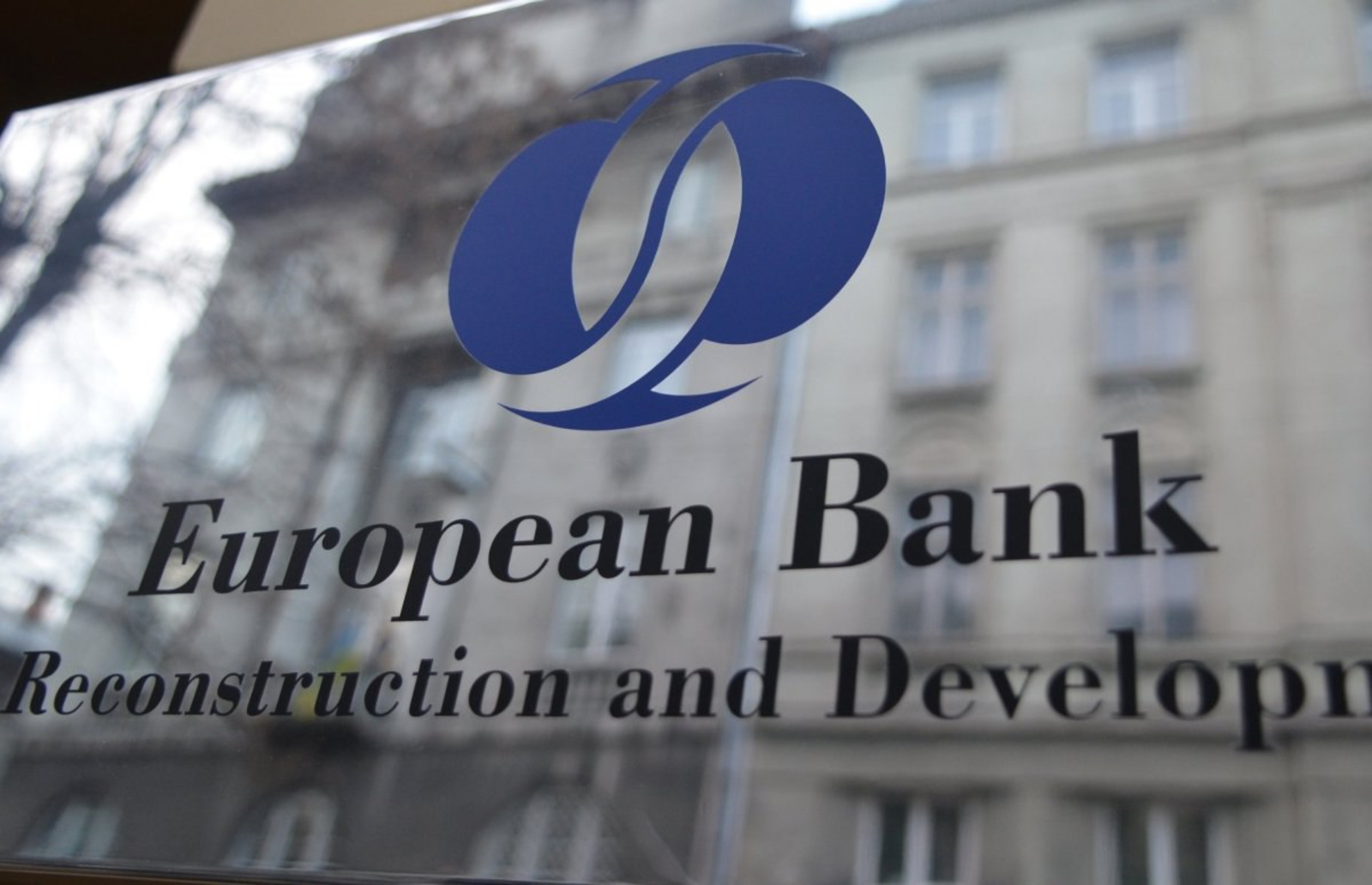
The European Bank for Reconstruction and Development (EBRD) is reviewing plans to extend a EUR 165 mn green loan to help enhance Egypt’s electricity distribution grid, according to a project summary document released earlier this week. The funds — on-lent to the state-owned Egyptian Electricity Transmission Company (EETC) — will help prepare the grid for the influx of renewable energy incoming from national projects. The loan — which will help finance the development of several power transmission stations across Egypt with a combined EUR 200 mn price tag — will be complemented by EUR 35 mn in direct grants from the EU and is slated for approval by 13 December, the statement notes.
The details: The funds will be funneled towards financing for a 500 KV substation in Cairo that is set to replace a gas-powered unit in the capital. It will also fund construction of a high-voltage overhead transmission line spanning 200 km to distribute some 2.1 GW of clean energy from renewables farms in the country’s Gulf of Suez region, the statement notes.
Part of a larger plan: The projects fall under the Energy Pillar of the country’s Nexus Water, Food, and Energy (NWFE) program, on which the EBRD is serving as the lead developing partner. The project will be the first grid investment under a USD 2 bn investment programme to be implemented by EETC under the NWFE initiative.
The EBRD has made an impact on Egypt’s clean energy sector: The EBRD — which has financed some 163 projects and committed to investing EUR 1.4 bn in the country to date — extended USD 50 mn to finance the 500 MW Gulf of Suez wind farm in Ras Ghareb back in May. The bank has also committed to contributing USD 200-300 mn to the NWFE initiative to support the phase out of 5 GW of gas-fired power plants by 2025, and support the development of solar and wind energy projects yielding 10 GW by 2028. The energy pillar of NWFE is expected to mobilize USD 10 bn of private-sector investment and USD 500 mn of soft loans, grants, and assistance from donors and international financial institutions.
IN OTHER EBRD NEWS- Climate finance by MDBs reached a new record high in 2022: Multilateral development banks (MDBs) have surpassed USD 50 bn climate finance targets set at the UN Climate Action Summit in 2019 for the second year in a row, according a statement by EBRD, citing a joint report (pdf) published by MDBs last week. The total climate funding for low and middle income economies reached USD 60.7 bn in 2022, with 63% going to mitigation, and the rest to adaptation projects.The EBRD’s own 2022 climate finance for low and middle-income economies rose to USD 4.3 bn, up from USD 3.9 bn in 2019, according to the statement.
FROM THE CLIMATE STORE
Tunisian-German solar-powered EV startup is expanding its production line soon
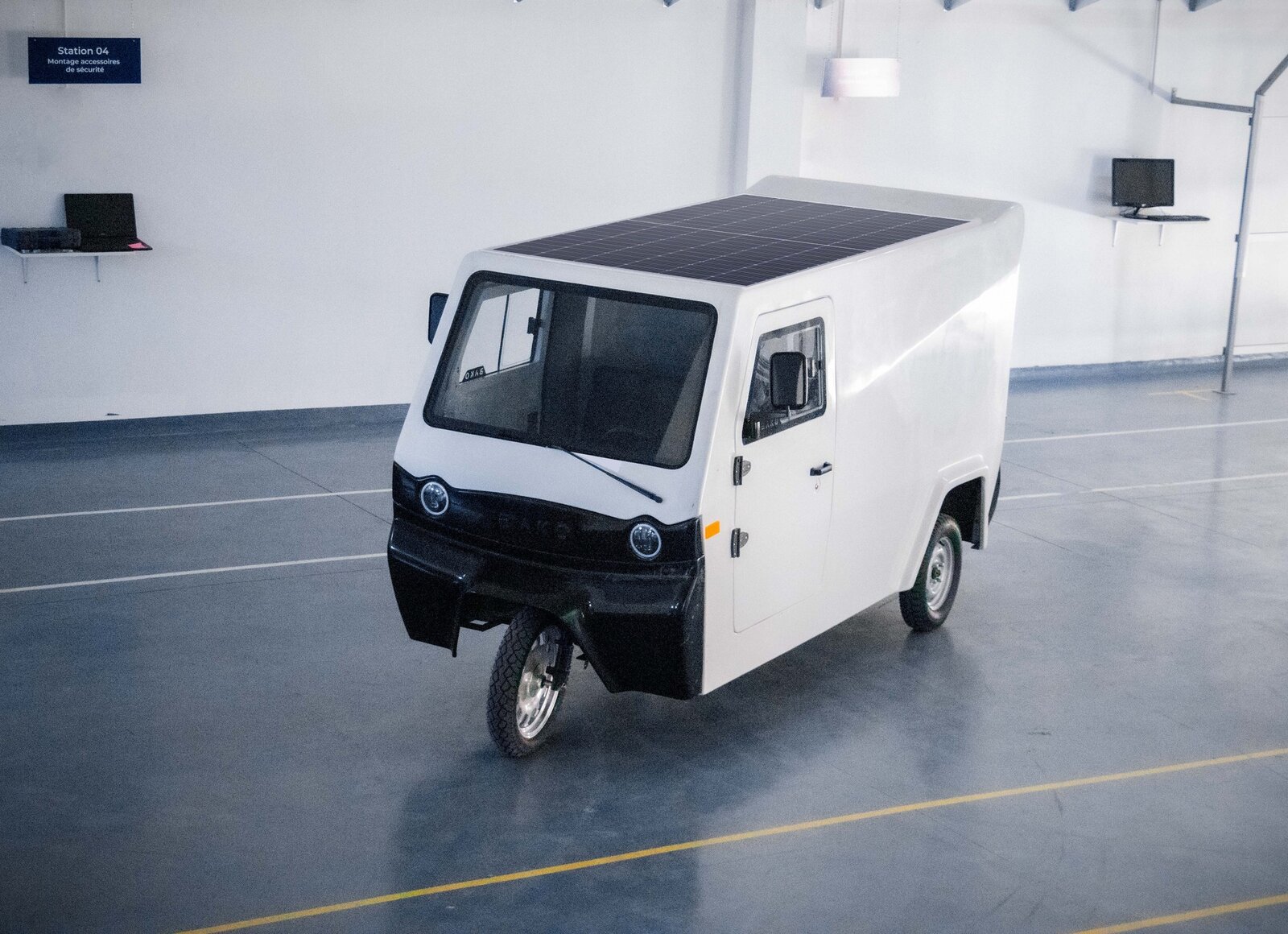
Tunisian-German EV startup gears up to launch second model: Tunisian-German start-up Bako Motors is preparing to unveil their second solar-powered electric vehicle that caters to the last-mile delivery sector, the firm told tech outlet Ventureburn. Unlike the first model — the Bako B1 electric tricycle — the new four-wheeled vehicle will also come with a passenger version. Bako Motors did not give any further details or mention when the new model is expected to hit the market.
Bako Motors’ first product is making waves beyond Tunisia: “The B1 has gained popularity not only in Tunisia but also on the international stage, with successful exports to Qatar and Germany,” Ventureburn said. Bako Motors also recently expanded to France through newly established subsidiary Bako France, the company said.
The specs: The B1 packs a 4 KW battery with a max range of 150 to 200 KM (depending on the version) on full charge, and can reach a top speed of 45 km/h, according to Bako Motors’ website. Its 2.4k liter loading capacity allows it to transport up to 300 kg of cargo. A full charge lasts three hours and nine minutes and it can be charged using domestic sockets.
Price tag + running costs: “Priced at just EUR 4k (USD 4.2k), this electric tricycle offers an economical and sustainable alternative to traditional fuel-powered vehicles,” Ventureburn writes. The vehicle also has relatively low operational costs, which can be as little as USD 0.50 for every 100 km on the road. The PV panel can offer up to 50 km of free driving per day.
About Bako Motors: The green mobility startup was founded in 2021 and has since sold its tricycle delivery vehicle for a wide range of local institutions, including SMART Tunisie, Tunis’ public health ministry, and supermarket startup Akdhi. It won the SolarX Grand Challenge this year where it was awarded a USD 15k prize.
ALSO ON OUR RADAR
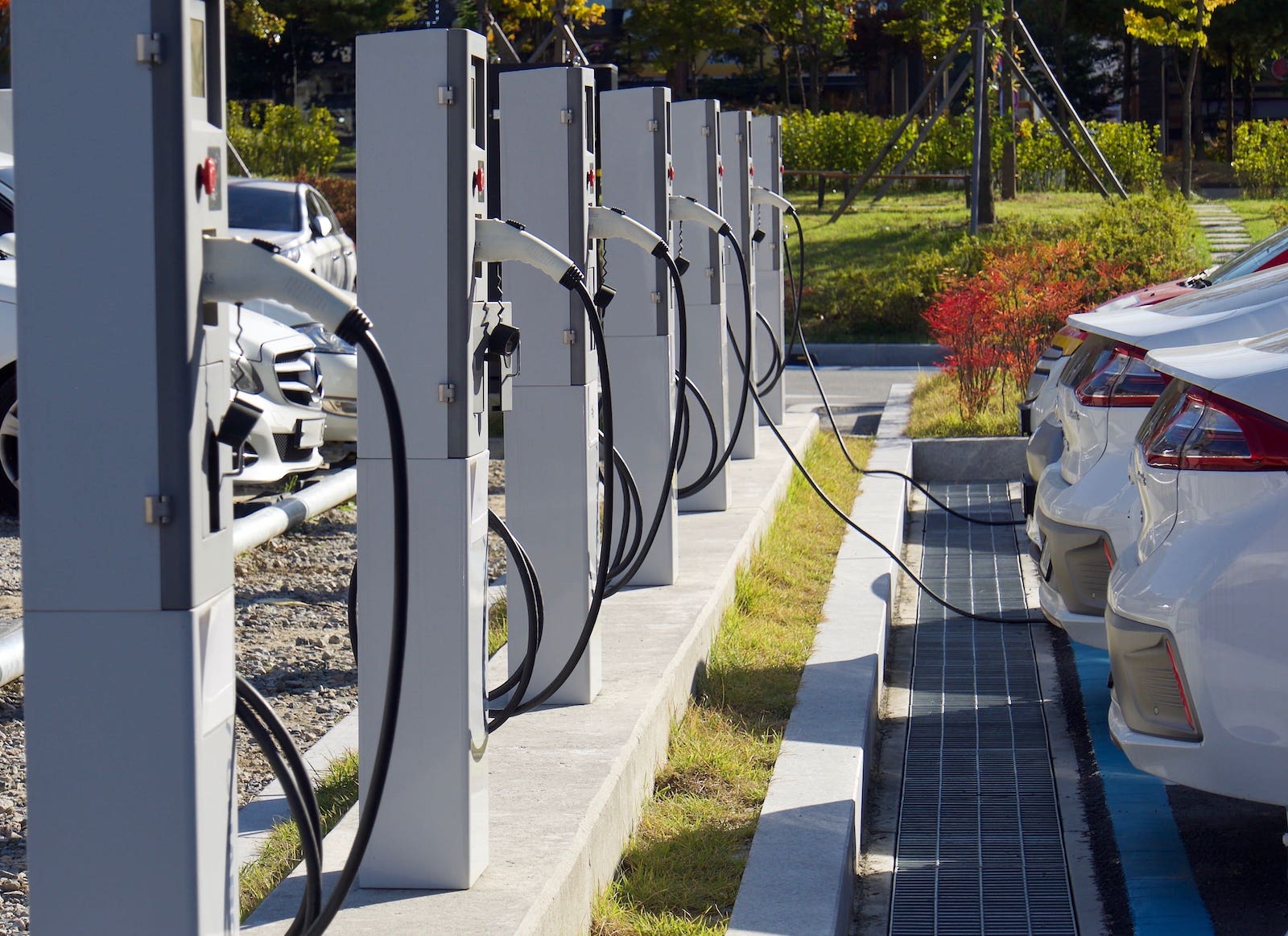
ELECTRIC VEHICLES-
Red Sea Global (RSG) has completed the installation of the largest off-grid EV charging network in Saudi Arabia, according to a statement. The network includes over 150 charging stations in the company's The Red Sea tourist destination. Establishing the network is a part of RSG's plan to become carbon neutral and be the world's largest destination to run on renewables only.
Refresher- RSG has another net zero destination, Amaala, in the works and is expected to start operations by 2025. It has also launched KSA's first seaplane company to ferry visitors between island resorts using sustainable aviation fuel.
CARBON CAPTURE-
The Oman Blue Carbon initiative aims to plant 100 mn mangrove trees within four years to capture 14 mn tons of CO2 emissions and capitalize on carbon credits, Oman News Agency reports. The project is expected to yield economic benefits worth USD 150 mn.
Mangroves have been getting their due attention in climate efforts: The UAE also announced earlier this month that it was planting 700k mangroves. COP28 is also expected to see a high-level Mangroves Ministerial for scaling up mangrove conservation and restoration.
OTHER STORIES WORTH KNOWING ABOUT THIS MORNING-
- Oman’s Nama Power finalizes procedures for 50 MW wind project: Oman’s state-owned Nama Power and Water Procurement Company has finalized registration procedures for a 50 MW wind energy project in the country’s Dhofar governorate with the International Renewable Energy Certification Organisation in a bid to help meet the Sultanate’s 2050 net-zero target. (Times of Oman)
AROUND THE WORLD

Denmark’s CIP raises EUR 2 bn from two new green energy transition funds: Danish investment firm Copenhagen Infrastructure Partners (CIP) has reached financial close on its newly launched Advanced Bioenergy Fund and CI Green Credit Fund netting some EUR 2 bn in financial commitments, according to a statement. The funds will be funneled to mobilize funding for clean fuels and renewables projects, the statement notes.
More details: The CI Green Fund raised a total of EUR 1 bn from a mix of investors — including sovereign wealth funds and institutional investors across the EU and Asia-Pacific markets — to support decarbonization efforts across the EU and North America, as well as “selective jurisdictions” in the Asia Pacific market. The CI programme will provide debt financing for renewables developers across the targeted markets, the statement notes. The bioenergy fund — which raised a total of EUR 750 mn — aims to support projects focused on generating renewable biofuels from food waste and agricultural refuse in a bid to minimize reliance on carbon-intensive energy sources through direct and risk-sharing transactions, the statement notes.
Uzbekistan’s green transition gets a boost from World Bank: The World Bank signed an agreement with Uzbekistan to provide USD 46.25 mn to finance the Innovative Carbon Resource Application for Energy Transition Project (iCraft), according to a statement released last week. The funds will support the country's clean energy transition, energy efficiency, and energy subsidy reforms. “The new project is a critical first step in the gradual elimination of energy subsidies … Effective policy reforms in the energy sector would strengthen Uzbekistan’s economy while substantially reducing greenhouse gas emissions,” the World Bank’s Regional Director for Central Asia Tatiana Proskuryakova said in the statement.
ALSO- The World Bank is also reportedly discussing a USD 1 bn loan to help reform South Africa's energy sector, World Bank Director for South Africa Marie Francoise Marie-Nelly told Reuters in an interview. South Africa is currently facing its worst power crisis due to regular breakdowns of coal-powered plants. The loan will help the country transition away from coal.
CLIMATE IN THE NEWS
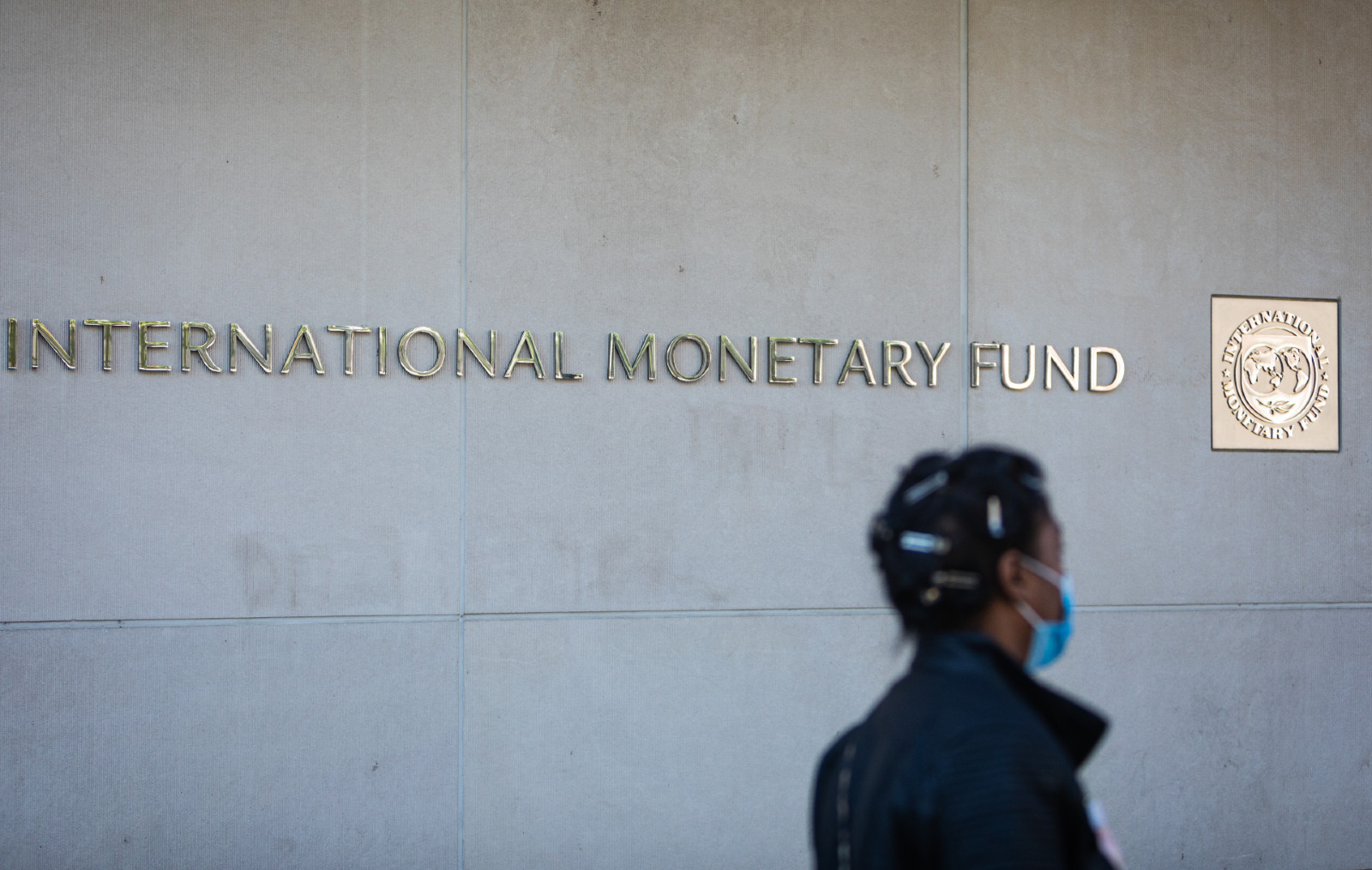
The IMF should provide poor countries with USD 300 bn a year to finance the fight against climate change, Nobel prize-winning economist Joseph Stiglitz told The Guardian. Developing countries will need grants and subsidies equal to the US’ Inflation Reduction Act, Stiglitz said, calling for rich countries to support the creation of USD 300 bn of IMF special drawing rights (SDRs) annually to support poor countries’ green energy transition, the report reads. “When the time comes and we are frying and somebody says: ‘How do we get out of the frying pan?’, this [annual SDR allocations] is one way of doing so,” Stiglitz said. “Unless developing countries and emerging markets reduce their emissions, no matter what pieties we do in the US and Europe, we will get global warming,” he added.
What are SDRs? SDRs are an international reserve asset which can be used as a credit line and exchanged with hard currencies, the Guardian writes. The IMF issued a USD 650 bn tranche of SDRs in 2021 in response to the coronavirus pandemic and rich countries agreed to recycle some of their SDRs into special IMF funds to support poor nations, the news outlet adds.
ON YOUR WAY OUT
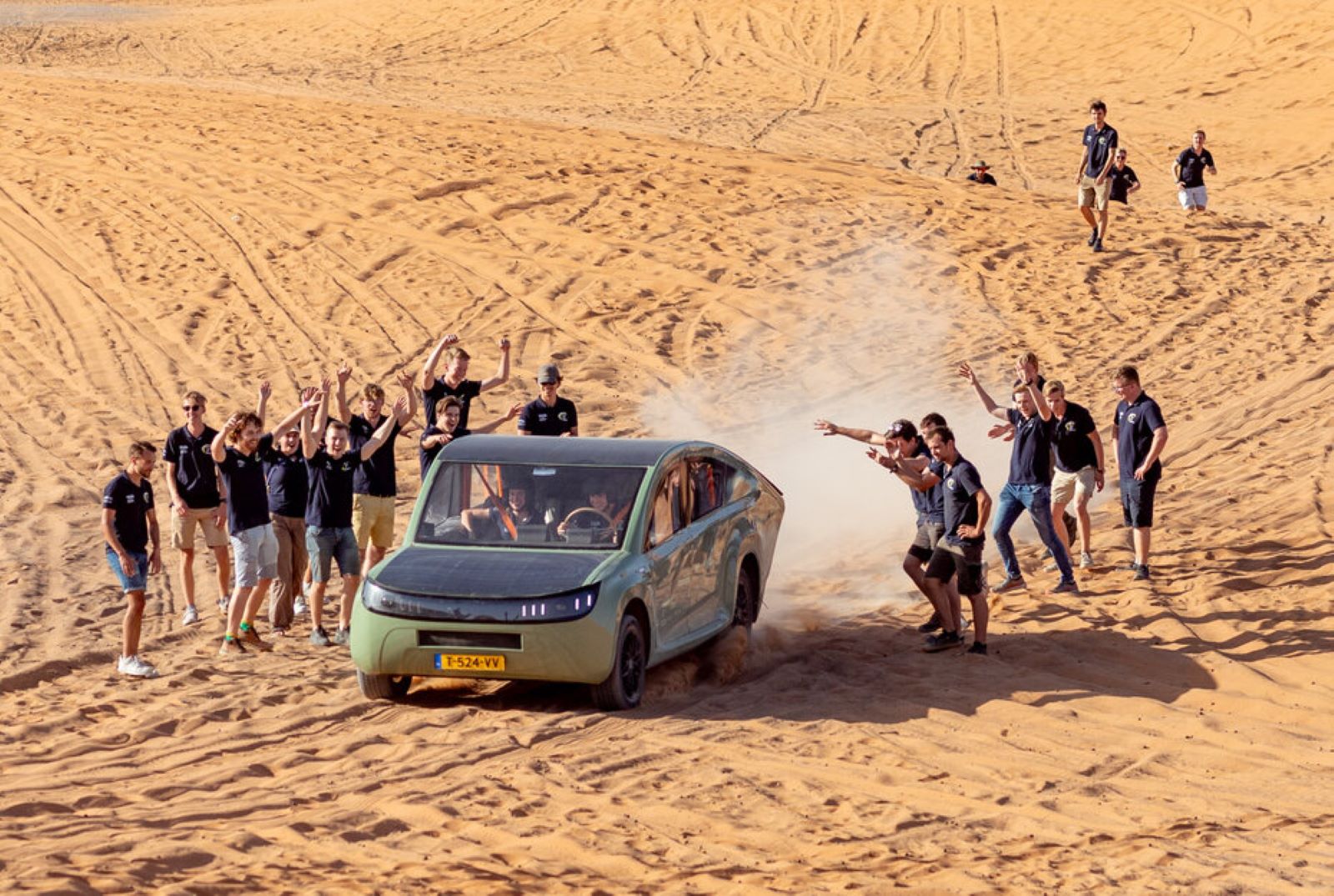
Dutch college students trial world’s first solar-powered off-road EV in Morocco: Dutch students from Eindhoven University of Technology in the Netherlands have completed a 1k kilometer prototype testing campaign for the world’s first solar-powered, all-electric SUV in Morocco, according to a statement. The test demonstrates the potential of PV-reliant vehicles for areas where grid and energy infrastructure is underdeveloped, and the solar car traversed through dry riverbeds, forested areas, steep mountain trails and through the desert.
Exceeding previous energy-efficiency estimates: Dubbed Stella Terra, the 1.2k kg EV, which was initially expected to have a 630 kilometer on-road driving range on a sunny day, surpassed previous estimates by designers during its Moroccan testing campaign, covering 710 km solely on solar power without the need for EV charging stations and consuming 30% less power than previously expected, the statement notes. The EV — which has a 145 km/h top speed — has a 550 km (342 miles) off-road drive range.
The Eindhoven team has other creations: The team debuted an all-electric vehicle dubbed Zem (an acronym for zero emissions mobility) last year with lithium-ion batteries that source up to 15% of its power from solar panels, and is equipped with a carbon capture and storage system that offsets greenhouse gasses (GHGs) on the drive. The EV packs filters on its underbelly, enabling the passage of air while locking in carbon dioxide, the developers note. The filters have to be emptied every 200 miles (c. 321 km) at designated EV charging stations with technology to store the CO2, the university notes, adding that the GHGs could be later repurposed to help develop clean fuels such as SAFs or be safely stored underground. The EV’s body and frame were also built using repurposed plastics, which were fed into a 3D printer to manufacture the car without relying on carbon-intensive metals.
CALENDAR
OCTOBER 2023
16-17 October (Monday-Tuesday): Duqm Economic Forum, Duqm, Oman.
16-18 October (Monday-Wednesday): Climate Week, Rome, Italy.
16-20 October (Monday-Friday): UNCTAD World Investment Forum, Abu Dhabi, UAE.
18-19 October (Wednesday-Thursday): 9th Conference of Environment Ministers in the Islamic World, Jeddah, Saudi Arabia.
18-20 October (Wednesday-Friday): Morocco and Belgium business meeting on green hydrogen, Tangiers, Morocco.
17-18 October (Tuesday- Wednesday): Critical Minerals Africa Summit, Cape Town, South Africa.
17-19 October (Tuesday-Thursday): Energy Intelligence Forum, London, UK.
17-20 October (Tuesday-Friday): Fourth meeting of the COP27 Transitional Committee, Aswan, Egypt.
25-26 October (Friday-Saturday): Offshore & Floating Wind Europe 2023, London, United Kingdom.
29 October-2 November (Sunday-Thursday): Cairo Water Week, Cairo, Egypt
29 -31 October (Sunday-Tuesday): Egypt Energy Conference, Egypt International Exhibition Centre, Cairo, Egypt.
30 October – 1 November (Monday-Wednesday) ISWA 2023 World Congress: Global action towards a net-zero future, Muscat, Oman.
31 October-2 November (Tuesday-Thursday): Financial Times’ Energy Transition Summit, London, UK.
31 October-2 November (Tuesday-Thursday): World Hydropower Congress, Bali, Indonesia.
NOVEMBER 2023
1-3 November (Wednesday-Friday): Forbes Middle East Sustainability Leaders Summit 2023, Abu Dhabi, UAE.
7-8 November (Tuesday-Wednesday): ADIA Lab Symposium on Climate Change and Health Sciences, Abu Dhabi, UAE.
7-8 November (Tuesday-Wednesday): The 2023 US Algeria Energy Forum, Washington DC, USA.
9-10 November (Thursday-Friday): International Renewable Energy Agency Investment Forum, Uruguay.
9-15 November (Thursday-Wednesday): Intra-African Trade Fair 2023, Cairo, Egypt.
11-13 November (Saturday-Monday): GCC-Türkiye Economic Forum, Istanbul, Turkey.
15-17 November (Wednesday-Friday): WETEX and Dubai Solar Show, Dubai, UAE.
15-18 November (Wednesday-Saturday): DEWA’s First MENA Solar Conference, Dubai, UAE.
20-24 November (Monday-Friday) International Civil Aviation Organisation’s Aviation and Alternative Fuels conference, Dubai, UAE.
27-30 November (Monday-Thursday) Abu Dhabi Finance Week (ADFW), Abu Dhabi, UAE.
28-29 November (Tuesday-Wednesday): World Green Economy Summit (WGES), Dubai, UAE.
30 November – 12 December (Thursday-Tuesday): Conference of the Parties (COP 28), Dubai, UAE.
DECEMBER 2023
4 December (Monday): Saudi Green Initiative Forum, Dubai, UAE.
4 December (Monday): Abu Dhabi Sustainability Week (ADSW) summit, Dubai, UAE.
8 December (Friday): Youth for Sustainability Forum (Y4S), Dubai, UAE.
12-14 December (Tuesday-Thursday): Green Hydrogen Summit Oman, Oman Convention and Exhibition Center, Muscat, Oman.
18-20 December (Monday-Wednesday): Saudi Arabia Smart Grid Conference, Hilton Riyadh Hotel & Residences, Riyadh, Saudi Arabia.
JANUARY 2024
9-11 January (Tuesday-Thursday): Future Minerals Forum, Riyadh, Saudi Arabia.
FEBRUARY 2024
26-28 February (Monday-Wednesday): Management and Sustainability of Water Resources, Dubai, UAE.
MARCH 2024
4-6 March (Monday-Wednesday): International Conference on Sand and Dust Storms in the Arabian Peninsula, Riyadh, Saudi Arabia.
APRIL 2024
16-18 April (Tuesday-Thursday): World Future Energy Summit, Abu Dhabi, UAE.
23-25 April (Tuesday-Thursday): Connecting Green Hydrogen MENA, Dubai, UAE.
MAY 2024
19-21 May (Sunday-Tuesday): Saudi Energy Convention, Riyadh, KSA.
JUNE 2024
5 June (Wednesday): World Environment Day, Saudi Arabia.
OCTOBER 2024
10-12 October (Tuesday-Thursday): Autonomous E-Mobility Forum, Doha, Qatar.
DECEMBER 2024
2-13 December (Monday-Friday): Conference of the Parties (COP16) to the United Nation Convention to Combat Desertification, Riyadh, KSA.
EVENTS WITH NO SET DATE
2023
Mid-2023: Oman set to sign contracts for green hydrogen projects.
Mid-2023: Sale of Sembcorp Energy India Limited to consortium of Omani investors to close.
Phase C of the 900-MW of the Mohammed bin Rashid Al Maktoum Solar Park in Dubai to be completed.
Saudi Basic Industries Corporation (Sabic) steam cracker furnace powered by renewable energy to come online.
2024
12-14 February (Monday-Wednesday): Sustainable Aviation Futures MENA Congress, Dubai, UAE.
End-2024: Emirati Masdar’s 500 MW wind farm in Uzbekistan to begin commercial operations.
QatarEnergy’s industrial cities solar power project will start electricity production.
2025
International Union for Conservation of Nature World Conservation Congress, Abu Dhabi, UAE.
UAE to have over 1k EV charging stations installed.
2026
UITP Global Public Transport Summit, Dubai, UAE.
1Q 2026: QatarEnergy’s USD 1 bn blue ammonia plant to be completed.
End-2026: HSBC Bahrain to eliminate single-use PVC plastic cards.
2027
MENA’s district cooling market is expected to reach USD 15 bn.
2030
UAE’s Abu Dhabi Commercial Bank (ADCB) wants to provide AED 35 bn in green financing.
UAE targets 14 GW in clean energy capacity.
Tunisia targets 30% of renewables in its energy mix.
Qatar wants to generate USD 17 bn from its circular economy, creating 9k-19k jobs.
Morocco’s Xlinks solar and wind energy project to generate 10.5 GW of energy.
2035
Qatar to capture up to 11 mn tons of CO2 annually.
2045
Qatar’s Public Works Authority’s (Ashghal) USD 1.5 bn sewage treatment facility to reach 600k cm/d capacity.
2050
Tunisia’s carbon neutrality target.
2060
Nigeria aims to achieve its net-zero emissions target.
Enterprise Climate is available without charge thanks to the generous support of HSBC (tax ID: 204-901-715), the leading corporate and retail lender in Egypt; and Infinity Power (tax ID: 305-170-682), the leading generator and distributor of renewable energy in Africa and the Middle East. Enterprise Climate is delivered Mon-Thurs before 4 am UAE time. Were you forwarded this copy? Sign up for your own delivery at climate.enterprise.press. Contact us on climate@enterprisemea.com.


